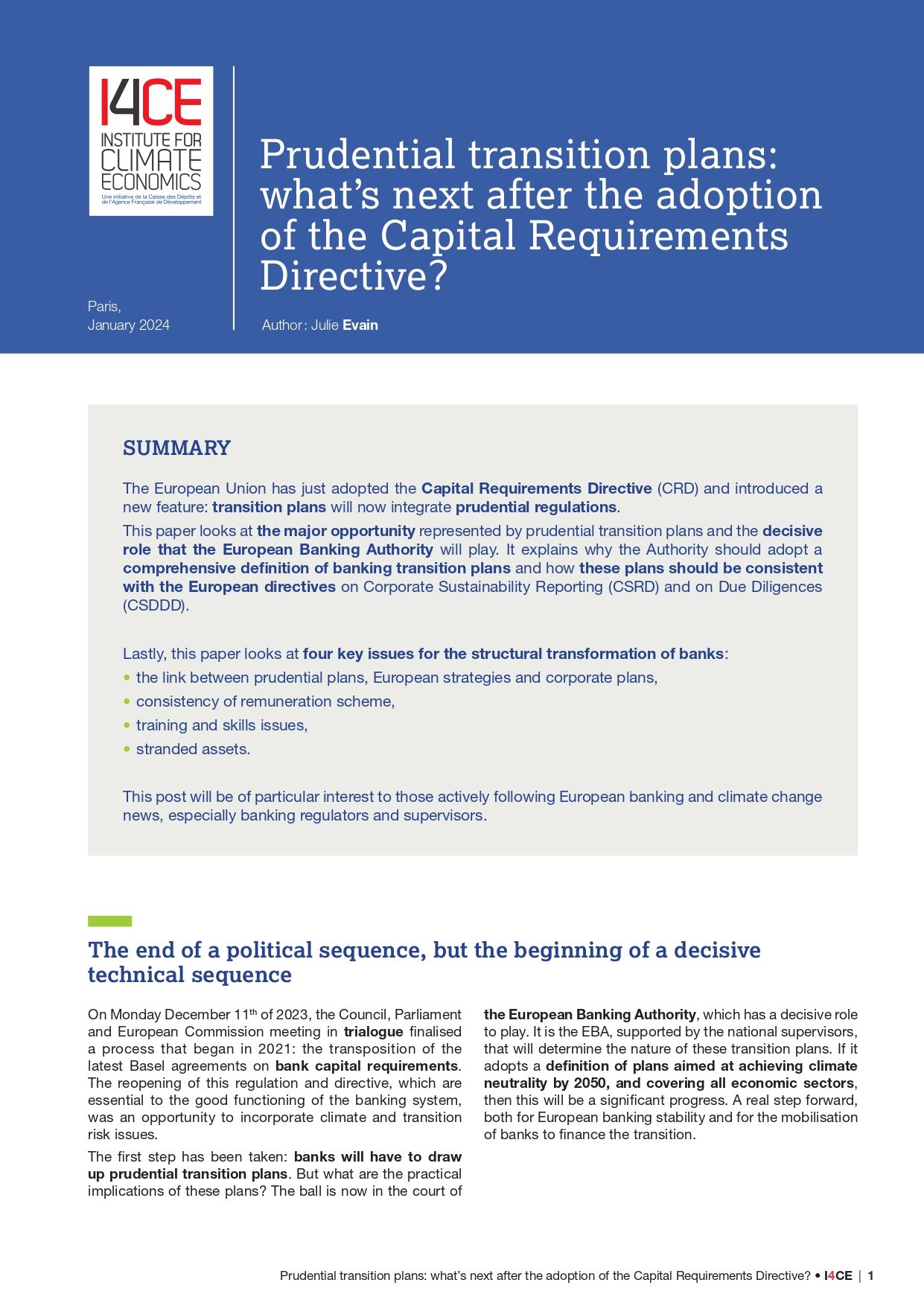Prudential transition plans: what’s next after the adoption of the Capital Requirements Directive?
The European Union has just adopted the Capital Requirements Directive (CRD) and introduced a new feature: transition plans will now integrate prudential regulations.
This paper looks at the major opportunity represented by prudential transition plans and the decisive role that the European Banking Authority will play. It explains why the Authority should adopt a comprehensive definition of banking transition plans and how these plans should be consistent with the European directives on Corporate Sustainability Reporting (CSRD) and on Due Diligences (CSDDD).
Lastly, this paper looks at four key issues for the structural transformation of banks:
- the link between prudential plans, European strategies and corporate plans;
- consistency of remuneration scheme;
- training and skills issues;
- stranded assets.
This post will be of particular interest to those actively following European banking and climate change news, especially banking regulators and supervisors.
